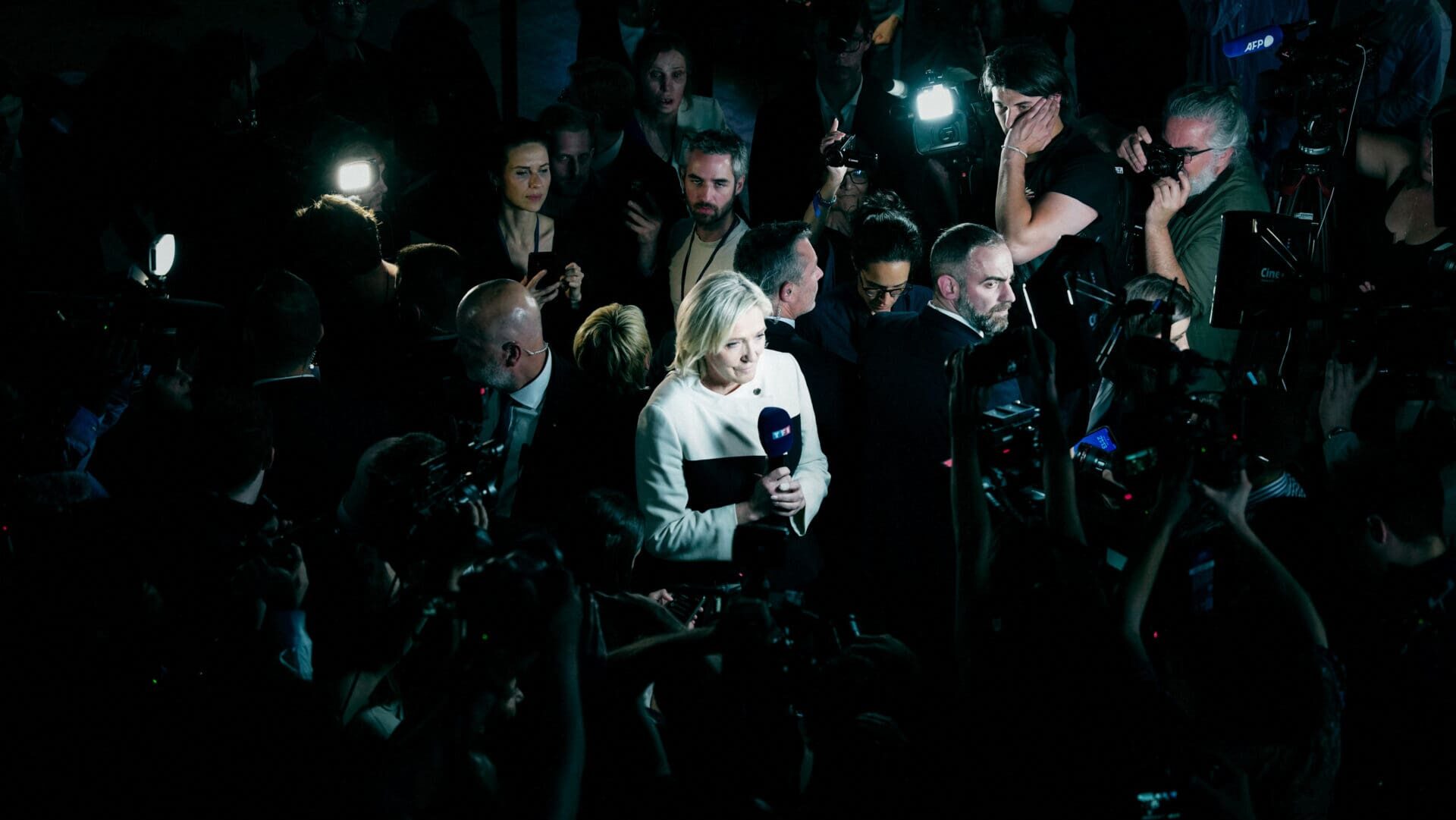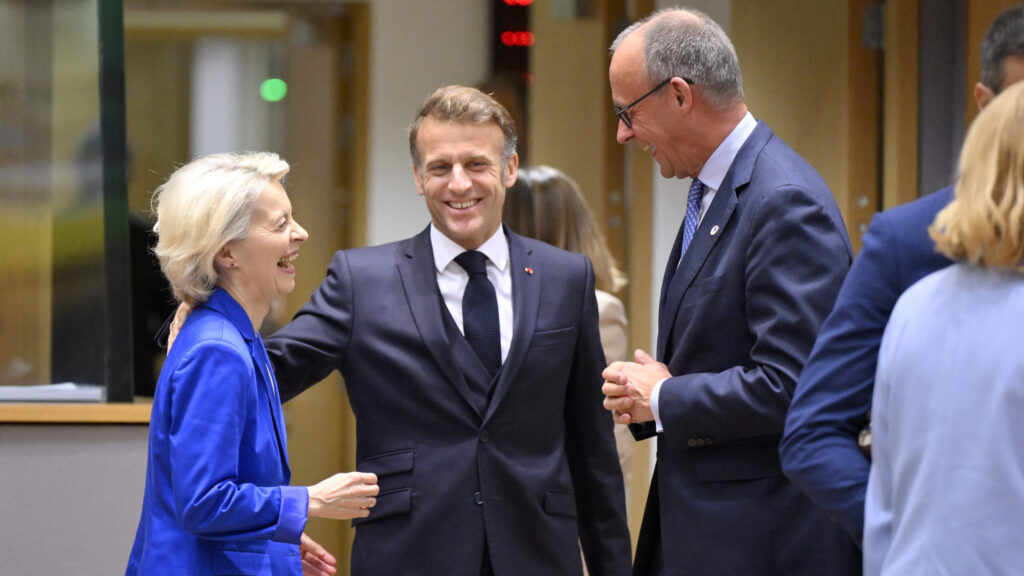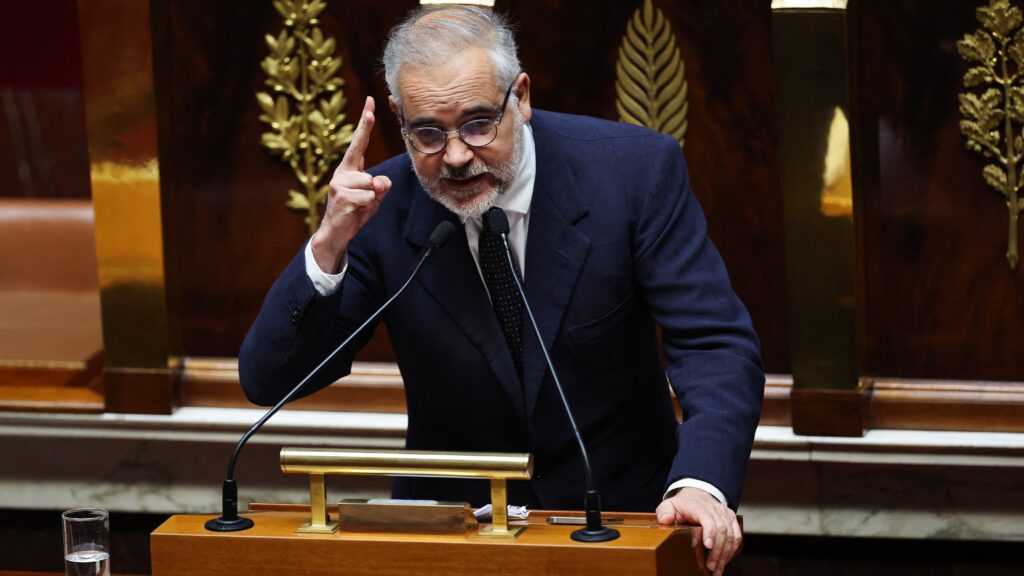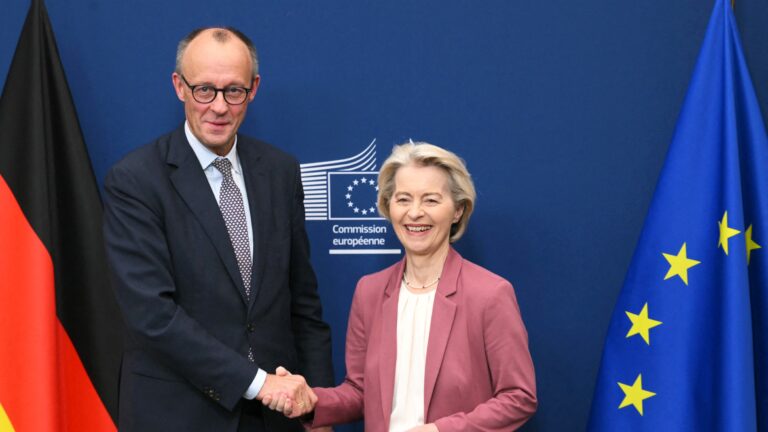Despite a landslide victory in the first round of the elections, the electoral coalition against Marine Le Pen’s National Rally (RN) has prevented the French right from taking control of the French National Assembly. According to the results of Sunday’s second round, the New Popular Front (NFP)—which includes Jean-Luc Mélenchon’s far-left France Unbowed (LFI)—came first with 32.6 per cent of the vote and 188 seats. They were followed by Ensemble (ENS), centrist alliance including French President Emmanuel Macron’s Renaissance, with 27.9 per cent of the vote and 161 seats, while the RN came third with 24.6 per cent and 142 seats. Centre-right Les Republicans (LR) came fourth with 8.3 per cent of the vote, which represents 48 seats.
The results mean that no party will obtain the 289 seats needed for an overall majority in the 577-seat assembly, setting the country on course for a hung parliament. Macron’s Prime Minister, Gabriel Attal, has already offered his resignation, but it is not clear who could take over. For the time being, Macron asked Attal to stay as caretaker prime minister.
The NFP, which won the most seats, is far from united. The far-left LFI, led by Jean-Luc Mélenchon, secured the most seats within the alliance, with 78. They are followed by the Socialists with 65, the Greens with 33, and the Communist Party with 9. Despite this, it is highly unlikely that Mélenchon could become France’s next prime minister, even though he hinted at this on Sunday. Many within the alliance consider his views too radical and unacceptable. It is more likely that the Socialists will join forces with the Greens to oppose Mélenchon’s ambitions. On Sunday, Mélenchon also ruled out the possibility of joining forces with Macron’s party to govern France.
The Real Winner of the Elections
Although the result appears disappointing for the French right and RN at first glance, Le Pen’s party has gained significant ground compared to the 2022 elections, with around 50 more seats than two years ago. This also makes the RN the strongest party in France. RN president and prime minister-candidate Jordan Bardella condemned the dishonest alliance between the left and the centrist camp between the two rounds, which he believes deprives the French people of a ‘government of recovery.’ He stressed that the RN ‘embodies the only alternative.’
🇫🇷 ELECTIONS: Jordan Bardella's speech in full pic.twitter.com/eQYWHL3tOz
— Politics Global (@PolitlcsGlobal) July 7, 2024
Marine Le Pen, RN National Assembly leader and presidential candidate, stressed that her party has become the strongest political force. ‘The tide is rising. This time it hasn’t risen high enough, but it keeps rising. And consequently, our victory is just postponed,’ Le Pen said in an interview with TF1. She added: ‘I am too experienced to be disappointed by a result that doubled the number of our MPs.’
How far the RN’s result on Sunday cannot be called a defeat is clear from the fact that experts interviewed by the liberal POLITICO also see the events of the past month as a success for Le Pen. ‘It’s a political upheaval, even if the National Rally doesn’t end up running the country,’ said Benjamin Morel, political analyst at Panthéon-Assas University, Paris. Morel added that Le Pen’s party was the big winner of the election, as the far-left and centrists’ unnatural coalition also provided them with a strong narrative ahead of the 2027 presidential elections.
‘They’ve got a great narrative ahead of 2027: they can say that their victory was stolen,
and they are the real alternative,’ Morel said.
One thing is clear from the results of the two rounds of elections: the French people are dissatisfied with Macron and his party; they have said no to a centrist government. What will emerge from the quagmire of French domestic politics, which now seems quite chaotic, will depend on the coalition negotiations in the coming weeks. However, given the current balance of power, it will be very difficult for both the president and the eventual government to govern effectively. The right, the far left, and the centrists have very different positions on numerous issues, and no compromise is likely to be reached on any of them, including the budget, which will be debated in the National Assembly this autumn.
In a shocking turn of events, far-left supporters set the streets of Paris and other cities ablaze and clashed with police immediately after the results were announced. Videos of the riots flooded social media platform X. French Interior Minister Gérald Darmanin stated that thousands of police officers had been deployed to control the far-left crowds.
French elections: Riots erupt after left-wing coalition projected to win plurality of seats – FOX Newshttps://t.co/ypMsG7RXyU pic.twitter.com/jpDe7WRLF1
— Goals Magazine (@realgoalsmag) July 8, 2024
Related articles:







